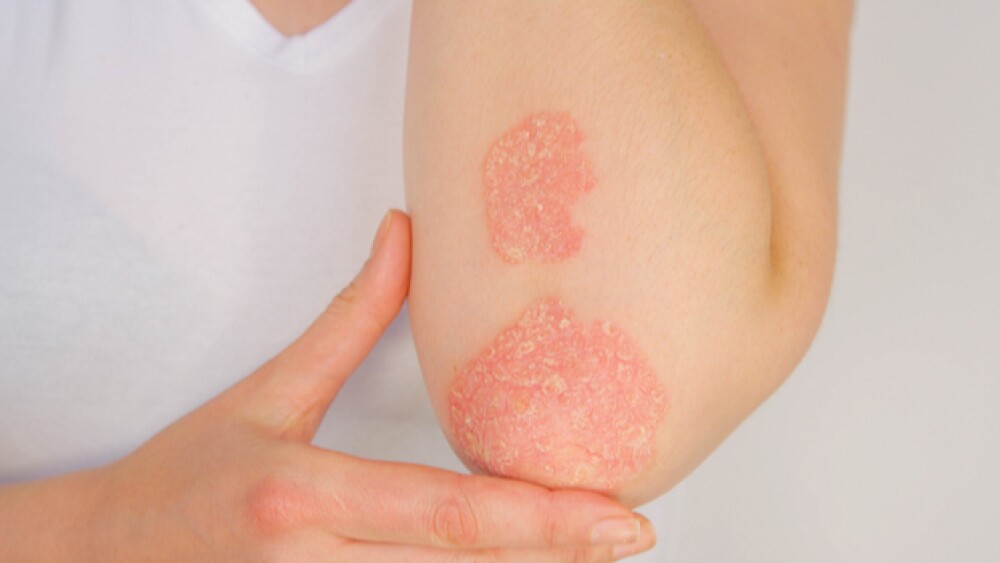A recent study shows that Bristol Myers Squibb’s oral tyrosine kinase 2 (TYK2) inhibitor deucravacitinib was associated with noticeable improvements in signs and symptoms of psoriatic arthritis compared with placebo.
Deucravacitinib showing promising results against Psoriatic Arthritis.
A recent study shows that Bristol Myers Squibb’s oral tyrosine kinase 2 (TYK2) inhibitor deucravacitinib was associated with noticeable improvements in signs and symptoms of psoriatic arthritis compared with placebo. The results from a Phase II trial were presented as part of the Late-Breaking Posters Session at the American College of Rheumatology Annual Meeting.
Deucravacitinib, dubbed “the first and only novel, oral, selective” TYK2 inhibitor, is under investigation in studies of multiple immune-mediated diseases. The selectively of deucravacitinib is fueled by a mechanism of action that Bristol Myers Squibb says is distinct from other kinase inhibitors. The intracellular signaling kinase drug mediates signaling of naturally occurring cytokines IL-23, IL-12 and Type I IFN, all of which are involved in immune and inflammatory responses. In addition to psoriatic arthritis, deucravacitinib is also undergoing clinical trial testing for psoriasis, lupus as well as inflammatory bowel disease. The investigational drug is not yet approved for any indication in any country.
“Many patients with psoriatic arthritis are not adequately treated, reinforcing the need for safe and effective oral treatment options that may help control the range of symptoms experienced as a result of this disease,” according to a statement made by lead study investigator, Philip Mease, M.D., director of rheumatology research at Swedish Medical Center/Providence St. Joseph Health and clinical professor at the University of Washington School of Medicine in Seattle. The investigators argued that deucravacitinib, based on the findings from the Phase II trial, may meet the current unmet treatment need for these patients.
The ongoing study of Bristol Myers Squibb’s TYK2 inhibitor randomly assigned patients with psoriatic arthritis to either deucravacitinib 6 mg (n=70) or 12 mg (n=67) or placebo (n=66). At week 16, the study met its primary endpoint of at least a 20% improvement in signs and symptoms of psoriatic arthritis. A significantly greater proportion of deucravacitinib-treated patients experienced improvements in their disease compared with placebo (6 and 12 mg: 52.9% and 62.7% vs. placebo: 31.8%; p=0.0134 and p=0.0004, respectively).
In addition, patients treated with deucravacitinib experienced significant improvements from baseline in several key secondary endpoints relevant for the psoriatic arthritis patient population. These endpoints included in the Health Assessment Questionnaire-Disability Index and change from baseline in the Physical Component Summary Score of the Short Form Health Survey-36 Item Questionnaire.
“The positive data from this Phase II study evaluating the safety and efficacy of deucravacitinib support the ongoing evaluation of this novel oral therapy for people living with the debilitating effects of psoriatic arthritis,” added Dr. Mease.
Deucravacitinib was well tolerated in this study, the investigators noted, and the safety profile was similar to what has been observed in a previous Phase II trial. In the deucravacitinib arm, there were no reports of serious adverse events, but some treatment-emergent adverse events (TEAEs) were noted. The most frequently reported TEAEs in the deucravacitinib 6 mg or 12 mg versus placebo groups included nasopharyngitis (5.7% and 17.9% vs. 7.6%, respectively), rash (4.3% and 6.0% vs. 0%) and headache (7.1% and 1.5% vs. 4.5%).
Deucravacitinib recently beat out Amgen’s apremilast drug in the POETYK PSO-1 Phase III clinical trial for the treatment of severe plaque psoriasis. Amgen had previously obtained apremilast from Bristol Myers Squibb with a cash payment of $13.4 billion following the latter company’s acquisition of Celgene Corporation in 2019.
POETYK PSO-1 is the first of two late-stage trials investigating deucravacitinib with placebo and apremilast in patients with severe plaque psoriasis. The study found that deucravacitinib was superior to both placebo and apremilast as evidenced by a greater proportion of patients in the deucravacitinib group achieving at least a 75 percent improvement in the Psoriasis Area and Severity Index (PASI). News of the POETYK PSO-1 trial results, announced in early November, caused shares in Bristol Myers to jump by approximately 3.5%.





